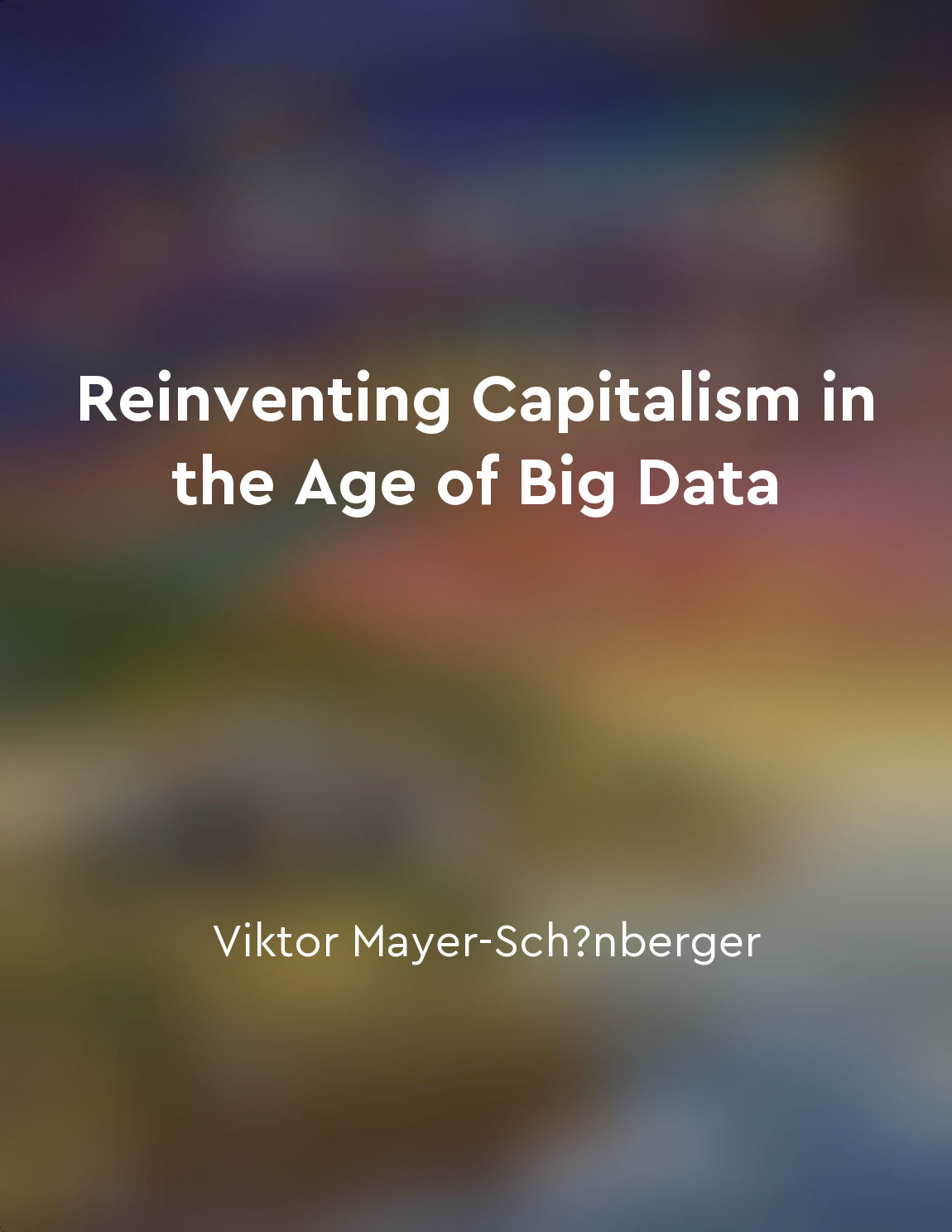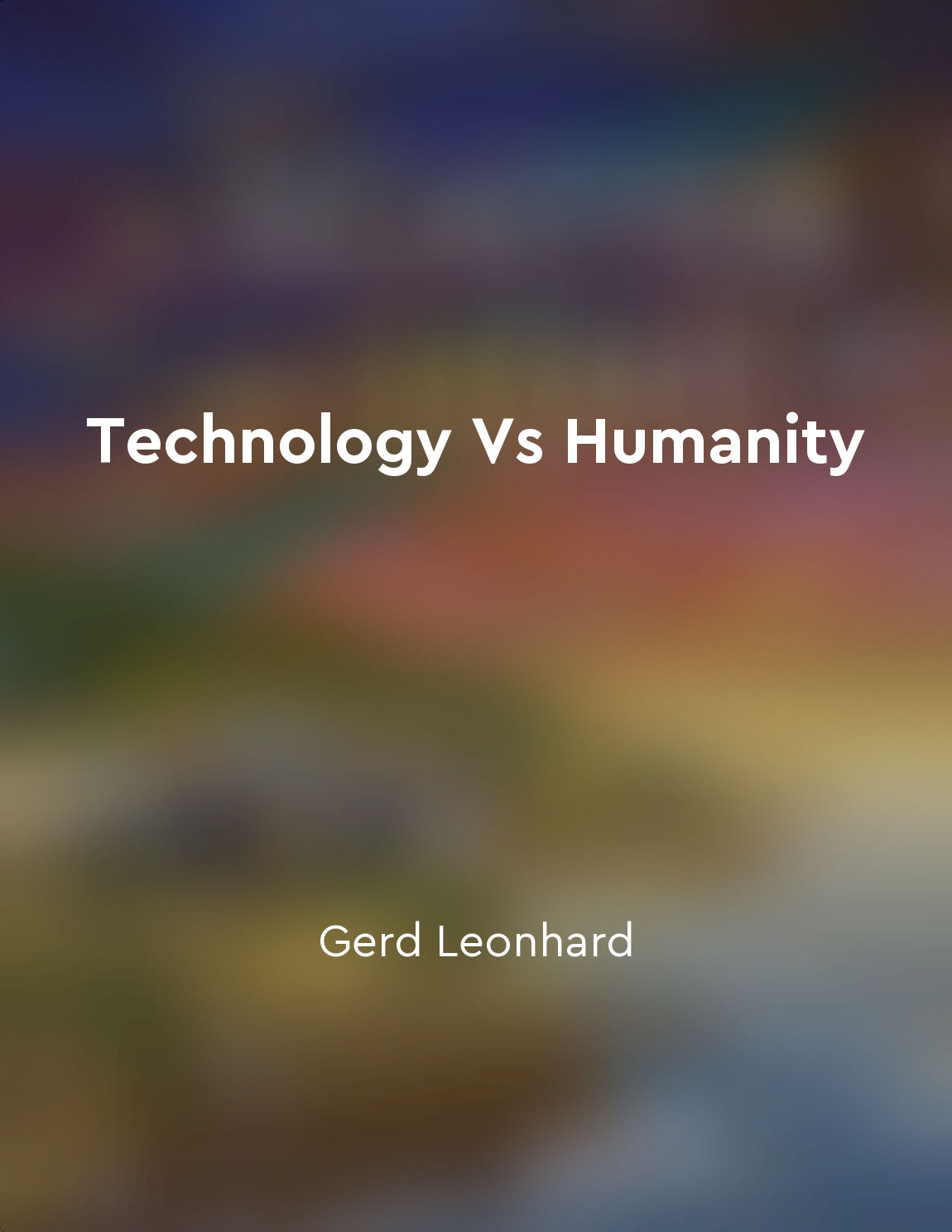The future will be defined by how we navigate the challenges of surveillance from "summary" of We See It All by Jon Fasman
In our modern world, the pervasive nature of surveillance has become an undeniable reality. We are constantly being watched, monitored, and analyzed, both by the government and private entities. This reality raises important questions about privacy, security, and freedom. How do we navigate this complex landscape of surveillance in a way that protects our rights and values?The future holds many challenges for us in this regard. As technology continues to advance at a rapid pace, surveillance capabilities will only grow more sophisticated and invasive. We must grapple with the ethical implications of this ever-expanding surveillance state. How do we balance the need for security with the right to privacy? How do we ensure that our personal data is not abused or misused? The way we navigate these challenges will ultimately shape the future. Our choices and actions today will have far-reaching consequences for generations to come. Will we allow ourselves to be constantly monitored and controlled, or will we stand up for our rights and demand transparency and accountability from those in power? Surveillance is not just a technological issue; it is a deeply human one. It touches on fundamental questions of trust, power, and control. How we choose to address these questions will determine the kind of society we live in. Will it be a society where freedom and privacy are cherished, or one where surveillance and control reign supreme? As we move forward into an uncertain future, we must confront these challenges head-on. We cannot afford to be passive or complacent in the face of increasing surveillance. It is up to us to shape the world we want to live in, a world where our rights and freedoms are safeguarded, and where our privacy is respected.Similar Posts

The themes of Homo Deus are shaping a new narrative of human history, where humans become the architects of their own destiny
In Homo Deus, the narrative of human history is being redefined through the exploration of various themes. These themes serve t...

Traditional media can no longer control the flow of information
The traditional media, once the gatekeepers of information, have lost their monopoly over the flow of news and content. In the ...

Biodiversity loss threatens ecological balance
Biodiversity is like a vast, intricate tapestry that has taken millions of years to weave. Every species, whether big or small,...
Proles are kept ignorant and powerless
The Party ensures that the Proles remain ignorant and powerless, as this is crucial to their control over society. By limiting ...
Governments must navigate complex challenges
Governments are constantly faced with a multitude of challenges in today's rapidly evolving world. These challenges are complex...

A new mindset is required to navigate the age of big data
To navigate the age of big data successfully, individuals and organizations must embrace a new way of thinking. This shift in m...
The origins of Islamic extremism
The roots of Islamic extremism can be traced back to the early 20th century, when the Ottoman Empire collapsed and the Muslim w...
Workplace structures foster fear and insecurity among employees
Anderson argues that within the private government of the workplace, employees often experience fear and insecurity as a result...
The acceleration of technological progress can lead to a loss of individual autonomy
In a Technopoly, the relentless acceleration of technological progress can have a detrimental effect on individual autonomy. As...

Technological progress is inevitable
The idea that technological progress is inevitable is a fundamental belief in our society. It is a concept that has been ingrai...

